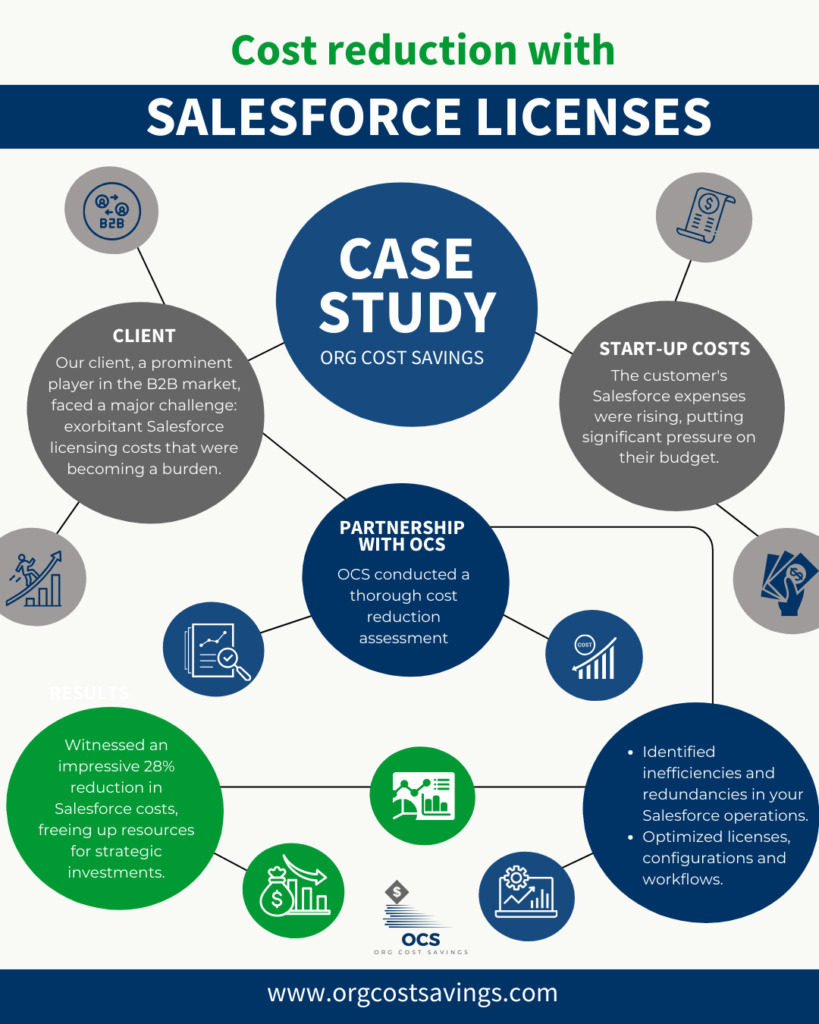Known as one of the most popular CRM platforms used by businesses around the world, with Salesforce license types varying, choosing the right license for your business can be challenging.
Each license type offers different features and capabilities, so it’s important to understand your options before making a decision.
In this article, we’ll explore the various Salesforce license types and help you determine which one is best suited for your specific business needs.
Whether you’re a small business looking for basic CRM functionality or a large enterprise requiring advanced customization and integration options, we’ll discuss the pros and cons of each license type to help you make an informed choice.
From the basic Essentials license to the robust Unlimited license, we’ll delve into the key differences and pricing structures so you can evaluate which option aligns with your budget and requirements.
By understanding the available Salesforce license types and their respective benefits, you can optimize your CRM experience and improve your business’s overall performance.
Let’s get started and find the perfect Salesforce license for your business.
Understanding Salesforce License Types
When it comes to Salesforce, there are several license types to choose from, each designed to cater to different business requirements.
Understanding the differences between these license types is crucial to selecting the right one for your organization. Let’s take a closer look at each type and their respective features.
Salesforce License Types for Small Businesses
For small businesses just starting out with Salesforce, the Essentials license type is a great option. It provides basic CRM functionality at an affordable price point.
With this license, you’ll have access to core features such as contact and account management, email integration, and opportunity tracking.
While the Essentials license may lack some of the more advanced features found in higher-tier licenses, it offers a solid foundation for small businesses to manage their customer relationships effectively.
If your small business requires additional functionality beyond the Essentials license, you may consider upgrading to the Professional license.
This license type includes all the features of the Essentials license, plus advanced customization options, such as workflow automation and access to the Salesforce AppExchange marketplace.
The Professional license is a step up from the Essentials license, offering more flexibility and scalability for growing businesses.
Lastly, for small businesses with more complex needs, the Enterprise license is the most comprehensive option. It includes all the features of the Professional license, as well as advanced analytics and reporting capabilities, custom application development, and integration with external systems.
The Enterprise license is ideal for businesses that require a high level of customization and integration to streamline their operations.
Salesforce License Types for Mid-sized Businesses
Midsize businesses often require more advanced features and capabilities to support their growing customer base.
For these companies, the Performance license is a popular choice. Includes all the features of the Enterprise license, with additional benefits such as unlimited custom app development and priority technical support.
The Performance license is designed to meet the complex needs of midsize businesses, offering enhanced performance and scalability.
Another license type suitable for medium-sized companies is the Unlimited license. As the name suggests, this license gives you unlimited access to all Salesforce features and capabilities. It is the most robust license type available and is typically chosen by organizations with large customer bases and complex business processes.
The Unlimited license offers the highest level of customization, integration and support, making it an excellent choice for companies that require maximum flexibility and scalability.

Salesforce License Types for Enterprise Businesses
Businesses often have unique requirements that require a highly customizable and integrated CRM solution.
Salesforce offers two license types tailored specifically to the needs of these organizations: the developer license and the platform license.
The Developer license is designed for companies that require extensive custom application development. This license provides full access to the Salesforce development platform, enabling companies to create and deploy custom solutions based on Salesforce CRM.
With the Developer license, organizations can create their own unique applications and workflows to align with their specific business processes.
The Platform license, on the other hand, is aimed at companies that need a CRM platform to build and deploy custom applications for their customers. This license type provides access to the Salesforce Platform, allowing companies to create and distribute custom applications for their customers and partners.
The Platform license is ideal for organizations that want to leverage the Salesforce platform to develop and deliver innovative solutions to their stakeholders.
Factors to Consider When Choosing a Salesforce License Type
When selecting a Salesforce license type for your business, there are several factors to consider. First and foremost, you need to assess your business requirements and determine the features and capabilities you need from a CRM solution.
Consider the size of your organization, the number of users who will be using Salesforce, and the level of customization and integration required.
Budget is another important consideration. Salesforce license types vary in price, so it’s essential to evaluate the cost of each license type relative to the features and benefits it offers.
Take into account the total cost of ownership, including any additional costs for customization, integration, and support.
Additionally, it’s crucial to consider the future growth and scalability of your business. Choose a license type that can accommodate your business’s expanding needs without requiring frequent upgrades or migrations.
Scalability is particularly important for businesses that anticipate rapid growth or have fluctuating user counts.
Comparison of Salesforce License Types

To help you make an informed decision, let’s compare the key features and benefits of each Salesforce license type:
1. Essentials License:
- Basic CRM functionality
- Affordable price
- Limited customization and integration options
- Suitable for small businesses with simple CRM needs
2. Professional License:
- All features of the Essentials license
- Advanced customization options
- Salesforce AppExchange access
- Ideal for small to mid-sized businesses with growing CRM requirements
3. Enterprise License:
- All features of the Professional license
- Advanced analytics and reporting capabilities
- Custom application development
- Integration with external syst
- Suitable for small to mid-sized businesses with complex CRM needs
4. Performance License:
- All features of the Enterprise license
- Unlimited custom app development
- Priority technical support
- Designed for mid-sized businesses with advanced CRM requirements
5. Unlimited License:
- Unlimited access to all Salesforce features and capabilities
- Maximum customization, integration, and support
- Ideal for enterprise businesses with complex CRM needs
6. Developer License:
- Full access to Salesforce’s development platform
- Extensive custom application development capabilities
- Suitable for businesses that require unique applications and workflows
7. Platform License:
- Access to the Salesforce Platform for custom application development
- Ability to distribute custom applications to customers and partners
- Ideal for businesses that want to leverage the Salesforce platform for innovative solutions
How to Upgrade or Downgrade Salesforce License Types
As your business evolves, you may need to upgrade or downgrade your Salesforce license type. Salesforce provides a simple process for making these changes.
To upgrade, simply contact Salesforce support or your account executive to discuss your requirements and select the license type you want. Salesforce will help you migrate your data and settings to the new license type.
Likewise, if you decide to downgrade your license type, contact Salesforce support or your account executive to begin the process.
Keep in mind that downgrading may result in the loss of certain features or capabilities, so it’s essential to carefully evaluate the impact on your business before making the change.
Managing Salesforce Licenses in your Organization
Managing Salesforce licenses within your organization is crucial for maximizing the value of your CRM investment. Salesforce provides a comprehensive set of tools and features to help you efficiently manage your licenses. These include user management, license assignment, and license tracking capabilities.
As we uncover the vast capabilities of Salesforce and its licenses, it’s evident that the platform is a dynamic force propelling businesses to unparalleled heights. However, unlocking these advantages demands a strategic and streamlined approach to Salesforce license management.
Enter OCS – Org Cost Savings, your ultimate ally in this journey. With a proven track record of optimizing and cutting costs associated with Salesforce licenses, we provide tailored consulting services to ensure your company attains peak efficiency in utilizing the platform.
Given the intricacies of the Salesforce landscape, having experts who grasp the unique subtleties of your requirements is crucial. Our consultative strategy not only focuses on cost reduction but also on maximizing the value derived from Salesforce licenses, aligning them seamlessly with your consultancy’s strategic objectives.

Embark on a discovery of the concrete benefits a collaboration with OCS can bring. By refining your Salesforce structure, we don’t just trim expenses; we unleash dormant potential, empowering your consultancy to achieve newfound efficiency and operational excellence.
Conclusion
Choosing the right Salesforce license type for your business is a critical decision that can significantly impact your CRM experience and overall business performance. By understanding the available Salesforce license types and their respective benefits, you can make an informed choice that aligns with your budget and requirements.
Whether you’re a small business, mid-sized organization, or enterprise, Salesforce offers a range of license types to cater to your specific needs.
Evaluate your business requirements, consider factors such as customization, integration, and scalability, and compare the features and benefits of each license type to determine the best fit for your organization.
Remember that as your business evolves, you can upgrade or downgrade your Salesforce license type to ensure it continues to meet your changing needs. Regularly manage your licenses to optimize their utilization and take advantage of Salesforce’s user management and reporting features.
By selecting the right Salesforce license type and effectively managing your licenses, you can leverage the power of Salesforce to enhance your customer relationships, streamline your operations, and drive business growth. Start exploring the available Salesforce license types today and find the perfect fit for your business.


Usually I do not read article on blogs however I would like to say that this writeup very compelled me to take a look at and do it Your writing style has been amazed me Thank you very nice article
Thank you for your comment. We are committed to continuing to bring content to help companies reduce costs with Salesforce.